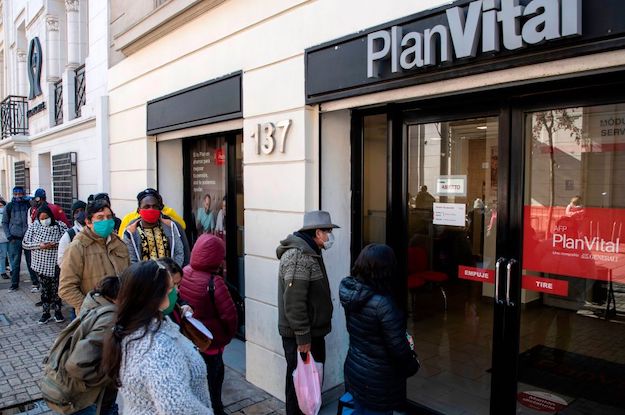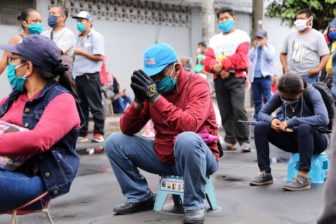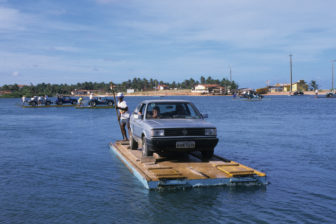Struggling to cope with the economic costs of COVID-19, Latin American governments are taking a closer look at their pension systems. In Chile, a new law allows citizens of any age to take up to 10% out of their retirement accounts. In Peru, savers were recently permitted to withdraw as much as 25% of their private retirement savings ahead of schedule. El Salvador, the Dominican Republic and others are also looking at old-age safety nets as an option to help people deal with unemployment and lost income.
But experts caution that loosening pension withdrawal rules could carry significant long-term risks – and may be more a sign of increased political instability than a sound economic response to the crisis.
Chile’s President Sebastián Piñera, whose brother designed the country’s pension system in 1981, initially opposed the 10% withdrawal plan over how it might affect savings – and Chile’s pension industry – in the long-term. Chile’s Administrators of Pension Funds (AFPs) manage the equivalent of 65.1% of GDP in savings, some $183.8 billion as of April 30, belonging to 10.9 million Chileans, about 58% of the population.
AFPs are a major political flashpoint in Chile. The NO+AFP (No More AFPs) movement was a fixture of widespread social unrest in 2019. For many Chileans, the Pinochet-era private pension system is synonymous with inequality and is often criticized for its low payouts and poor coverage. Jennifer Pribble, an associate professor of political science at the University of Richmond, noted that the 10% withdrawal legislation “reflects a lot of the discontent we saw last October.” Wider pension reform is also on the horizon in Chile – Piñera has promised “major surgery” to the system, and should Chileans choose to rewrite the constitution in October’s referendum, pension reforms are likely.
The new legislation thus enjoys popular support, with a poll from early July showing 83% of Chileans supporting the law. It permits drawdowns ranging from $1,250 to $5,500, and Chile’s governing body on pensions estimates that $20 billion will be withdrawn nationwide, a blow to both the AFP business and to the overall economy.
“Chileans really boosted and expanded domestic capital markets with the pension privatization, so this could take a heavy toll on national capital markets and the stock exchange,” Pribble told AQ.
Finance Minister Ignacio Briones, an outspoken critic of the law, said the measure means “bread for today, but hunger tomorrow” and “is not good for the country.” In a last-ditch attempt to prevent its passage, Piñera rolled out an economic relief plan aimed at the middle class that included a one-time payout of $630 for those whose incomes were reduced by at least one third, but it wasn’t enough. Even members of his center-right coalition went against Piñera and supported the bill. With his approval at 12%, Piñera risked losing even more public support by vetoing the legislation, which carried a constitutional amendment, or sending it to the Constitutional Court for review. He signed the bill on July 24.
Meanwhile in Peru, 3.9 million people, over half of private retirement account owners, opted to take a payout after a law allowed them to withdraw up to 25% of their private pensions, a maximum of $3,800, through July 16.
“They are destroying the savings that we have accumulated over the past 30 years,” Noelia Bernal, a professor of economics at the Universidad del Pacífico, told AQ in regard to the legislation.
President Martín Vizcarra initially issued a decree to allow a $560 maximum withdrawal from private pension funds in April as an emergency measure. But Congress took the idea and ran with it, passing the 25% law.
“The government opened this small door, then of course the politicians got the idea to expand it. I think this was a big mistake,” said Bernal.
Critics like Bernal caution that legislators may also authorize drawdowns from the public pay-as-you-go pension system. This would “create holes in the national system, which would debilitate our pension system overall,” she warned.
Similar changes to private pension schemes have come up for debate across the region in the wake of COVID-19. In April, the Salvadoran legislature discussed a 35-50% withdrawal option, and in June the Colombian Ministry of Finance stated that it was taking this policy under consideration. In the Dominican Republic, the lower house passed a measure permitting a 30% drawdown in June, and the legislation was sent to the Senate for debate.
While citizens have been demanding pension reforms in many countries, these emergency changes that risk limiting retirement funds are the result of desperate tactics prompted by the COVID-19 economic downturn. “Latin Americans lack social protection. We have not invested enough in health and in employment insurance for times of crisis. And now we are paying the bill,” said Bernal.
—
Sweigart is an editor at AQ.









